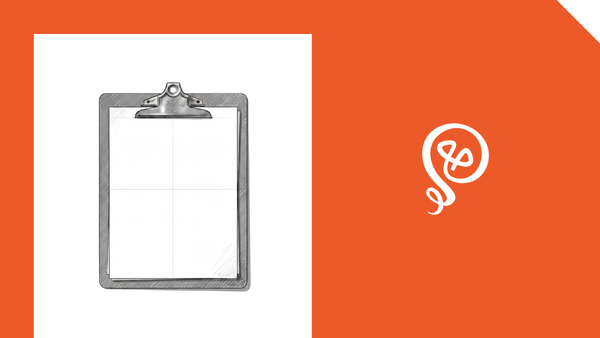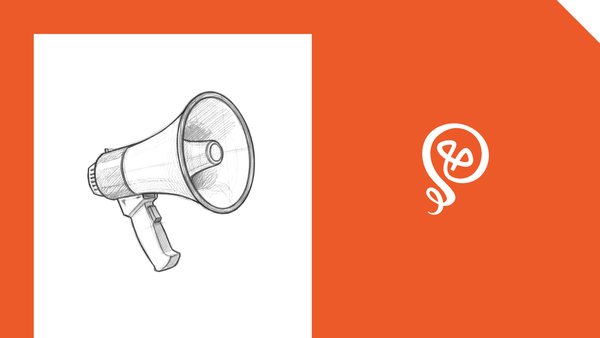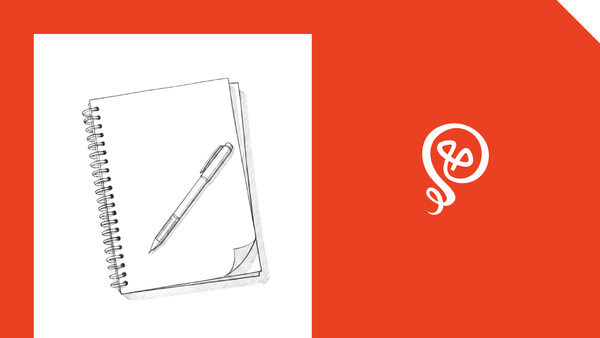Hiring a Freelancer? Here's How to Get the Most Out of the Relationship
Not sure where to start? Here are tips from a successful freelancer.

If you're not quite ready for a full-time hire, freelancers can fill a specific need within your growing company.
Collaboration is critical for an effective freelancer relationship. You can't hand something over to a freelancer and expect the exact result you have in mind without communication and treating the freelancer as a part of your team.
But a client-freelancer relationship is different from an employer-employee relationship. Freelancers are running their own small business (even if it's a business of one!) and are often working with multiple clients.
Even though freelancers aren't employees, you can treat the relationship like a partnership. Freelancers should be invested in your success, because that means they've done their job — and can hopefully form a long-term working arrangement.
If you want the most out of your freelancer, you have to clearly identify what you're looking for, find the right freelancer, and then treat the freelancer as both a part of your team and an independent professional.
How to Find Freelance Talent
Before you start your freelancer search, you should know exactly what you need. Freelancers have a wide range of skills, from generalist to incredibly niche. For example, I'm a freelance writer for financial technology companies, but I don't do strategy. I'm only executing on a client's already-existing strategy. That works for some companies, but not others — some also need strategy help.
A lot of people post on LinkedIn, something like "I'm looking for a freelancer with experience in XYZ." That approach is almost guaranteed to get you hundreds of responses to sift through, and many of them won't be good. There's a huge range of freelance skills, and you'll find yourself reviewing tons of portfolios, looking for a potential good match.
A better strategy is to ask people you know, such as fellow entrepreneurs. You could also ask in a community (provided the community doesn't also serve freelancers who'll jump at the chance to send you a portfolio). You can search for freelancers on LinkedIn using keywords. Clients find me by searching for "fintech writer" because that's my area of expertise.
If you find a few freelancers, you can review their portfolios first and then reach out to your top candidates. You'll save a ton of time by targeting your search and talking to a few freelancers, versus reviewing everyone who replies to a job posting.
Even if you're not in the market for a freelancer right now, but know you may need one in the future, be on the lookout. Many freelancers promote themselves and their services. If you see someone who might be a good fit, bookmark their profiles to reach out in the future.
Set Expectations About the Working Relationship
My relationship with each client is unique. Some give me a very detailed outline to follow and some give me nothing more than a topic and expect me to run with the idea. Either is fine with me — but it's important to discuss your expectations when you first talk with the freelancer.
I also have clients who want me to provide suggestions or push back if I don't agree with the deliverable's approach (and then it's an open discussion/collaboration). Others want me to follow the outline exactly as written.
You have to ask yourself: do you want the freelancer to guide the deliverable, or do you expect them to take direction? It changes the vibe of the relationship. I'm fine working either way, but some freelancers may strongly prefer one or the other. If that's the case, you need to make sure you and the freelancer can work well together.
You'll also want to discuss communication and, specifically, response times. Because freelancers are working with multiple clients, they may not respond as fast as an internal employee would. On the flip side, when the freelancer delivers something to you, you'll want to commit to reviewing it and providing feedback within a specific timeframe (such as a week).
Also, talk to the freelancer about any internal tools you may want them to use, such as a project management system or Slack. One of my freelance friends protects her peace by refusing to use Slack with any of her clients. If Slack is the primary conversation tool for any of her potential clients, they need to have a conversation about how they'll communicate effectively.
A Two-Way Street of Respect
Some clients treat their freelancers like an afterthought. And while they certainly aren't as visible as your employees, they are contributing to your overall business goals.
I ensure I'm transparent about my availability and communicate any delays well in advance (though I try exceptionally hard to always deliver on time). I expect clients to pay on time, set reasonable deadlines, and communicate clearly. We need to have mutual respect to have a solid foundation for collaboration.
If you've never worked with a freelancer before, create a process for approving invoices and paying the freelancer. The freelancer shouldn't have to chase down payment.
Of course, you want the freelancer to respect the working relationship also. Review testimonials from other clients and look for signs that the freelancer is reliable and turns in quality work.
Treat the Freelancer Like a Partner
The best freelancers become an extension of your team. They take feedback in stride and incorporate your comments into future deliverables.
The freelancer should want to see a good outcome, whether it's for a specific project or ongoing work. Your success is their success.
Share feedback with your freelancer, especially as you start to see results from their work. Unlike employees, freelancers don't get performance reviews: they often have no idea how their work has impacted a business. They can continue to improve their work the more feedback you give. Plus, sharing success metrics validates their work and helps freelancers refine their strategies to better serve you.
If possible, let the freelancer share the outcomes of your work together in their portfolio. The freelancer is helping you grow, so in return, you can help them grow their own business.

Subscribe to my newsletter for tips to make your day better and make your life easier.






